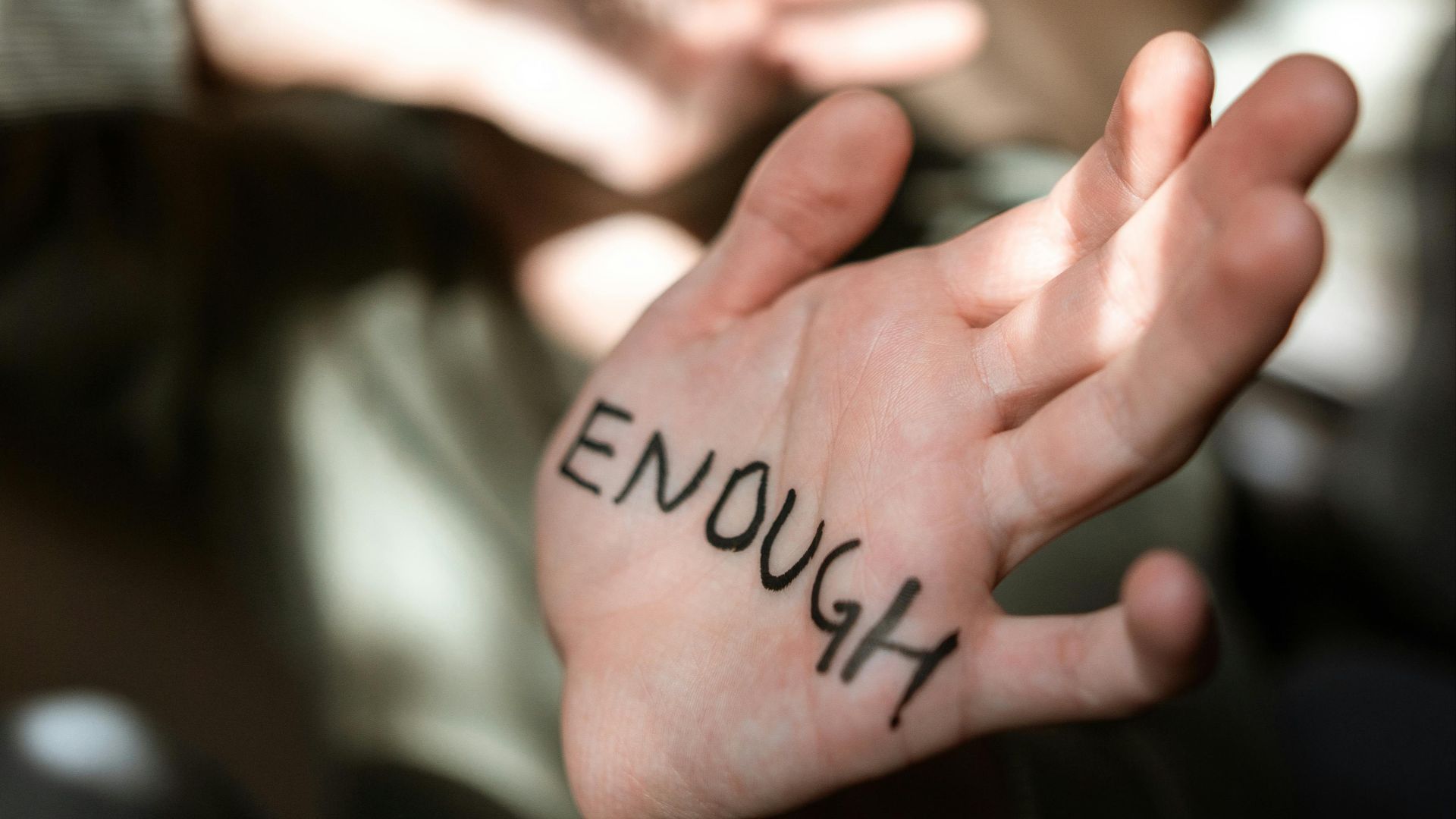10 Signs You're Too Empathic & How To Stop Being An Emotional Sponge
Feeling Empathy Fatigue?
Do you feel like you're the unofficial therapist of your friends and family? While empathy is a beautiful trait that deepens your connection to others, it can also get out of hand. Overly-empathic people take on other people's problems and emotions as their own, getting bogged down by the emotional weight. Here are 10 signs you're too empathic and 10 strategies for safeguarding your emotional health and well-being.
1. You Struggle To Set Boundaries
Do you say "yes" to people even though you want to say "no" out of fear of hurting them? You're putting others' well-being ahead of your own.
2. You Get Easily Overwhelmed In Social Situations
Because you feel what everyone else is feeling, you get easily overwhelmed in crowds or social situations. This is even more pronounced if a conflict arises near you, as intense feelings become your own.
 Priscilla Du Preez 🇨🇦 on Unsplash
Priscilla Du Preez 🇨🇦 on Unsplash
3. You Overextend Yourself
Because you're constantly putting others' feelings ahead of your own, you tend to overextend yourself. You'll give time, energy, and support at the expense of your own needs.
4. You Feel Others' Emotions Intensely
Almost all of us feel other people's emotions to some extent: it's a part of being human. However, if you're overly empathic, you feel them to intense levels. When you see someone in pain, you're in pain, or when you see someone crying, you start to cry.
5. You Take Others' Problems As Your Own
The moment someone starts telling you about their problems, you automatically take them on as your own. You'll even put your own problems aside to solve theirs.
6. You Prioritize Others' Needs Over Yours
Because you're so sympathetic about what others are going through, you often forget to prioritize yourself. You want the people in your life to feel good, and you'll be so concerned for them that you'll forget about yourself.
7. You Feel Overly Responsible For Others' Feelings
You feel a strong sense of obligation to the emotional states of others. You'll feel guilty that someone else is feeling bad, even if it has nothing to do with you.
8. You're Distressed By Media & News
It's not only the people in your life whose feelings you take on; it's the whole world's. You'll be legitimately distressed by a heavy news story or a sad movie.
9. You Feel Drained
All this carrying of other people's emotions is no doubt draining. When you take on someone else's suffering, it can lead to emotional exhaustion.
10. You Have Feelings Of Dread
When you take all the pain and suffering in the world to heart, you might find it difficult to feel positive. This leads to feelings of dread and depression.
Now that we've covered the signs that you're too much of an emotional sponge, let's talk about how to manage your empathy.
1. Create Distance
Although we're not saying you have to stop caring entirely, it's healthy to step away from people or situations that are particularly draining. Take a day or two for yourself and return when you feel recharged.
2. Consume Media Mindfully
While it's important to stay informed, being overly empathic and being a news junkie are two things that shouldn't go hand-in-hand, as the media is full of depressing stories. Pay attention to how much news you're consuming, how it's making you feel, and take some time from it when necessary.
3. Prioritize Self-Care
All of us need to set aside time for ourselves. This can be harder to do if you're a highly empathic person, but it's even more necessary to recharge your battery, whether it's through sleep, hobbies, or exercise.
4. Learn To Say No
It's hard to say "no" when you want to help, but doing so is not selfish. It's essential to protect your time and energy and prevent burnout.
5. Identify Your Triggers
The first step to managing your reaction to them is to become aware of the situations or people that make you feel overwhelmed. Only then can you develop coping strategies and master your emotions.
6. Journal
Journaling is an essential tool for increasing self-awareness. Write about your feelings and experiences to understand your own emotions and needs.
7. Use Visualization Techniques
Next time you're in a distressing situation, visualize a barrier between yourself and others. This helps create emotional distance and transports you internally to your own safe bubble.
8. Seek Balance In Relationships
You shouldn't always be the one listening to other people's problems. You should also feel heard. Make sure your relationships are balanced and that you also have an outlet where you can openly discuss your feelings.
9. Practice Grounding Techniques
Grounding techniques like meditation, deep breathing, and short walks can help you recharge and separate your emotions from others'. These practices serve as an anchor, redirecting your focus to the present moment.
10. Seek Professional Help
If you find your empathy to be debilitating, you may want to consider seeking out professional help in the form of therapy or counselling. They can provide you with helpful strategies and support.



























